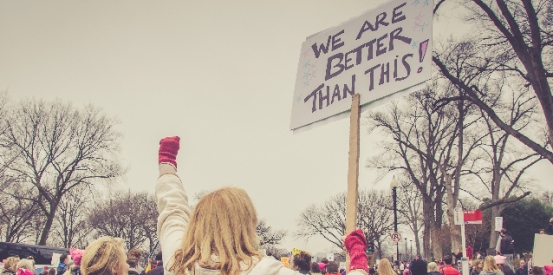Announcing our top awareness events for March!
Ovarian Cancer Awareness Month
11 women die in the UK every day from ovarian cancer. Awareness of ovarian cancer is low, both among women and GPs, with two-thirds of women are diagnosed once the cancer has already spread.
Target Ovarian Cancer say enough is enough. They are asking people to #StartMakingNoise so we can make sure women have the best chances of survival. Rustle up your best bakes, join the Big Colour Clash and wear your boldest and brightest clothes. However, you choose to help, your fundraising will save lives.
Find out more here.
International’s Women’s Day – 8 March
International Women’s Day celebrates the social, cultural, economic and political achievements of women across the globe. But far from singling out women, the day focuses on unity, equality and advocacy – especially in a world where the differences and injustices between women and men are as great as ever.
Keep up with the movement by following #IWD2018 on Twitter.
World Glaucoma Week – 11 March
World Glaucoma Week is a series of global activities that alerts people to have regular eye (and optic nerve) checks to detect glaucoma earlier, thus contributing to sight preservation.
Find out more about this highly important cause here.
National No Smoking Day – 14 March
No Smoking Day is an annual health awareness day in the UK which is intended to help smokers who want to quit smoking. Each year, the campaign is promoted with a theme in the form of a short phrase. In 2010, this theme was “Break free”, encouraging smokers to break free from the chains of cigarettes and quit on No Smoking Day. The 2011 theme was “Time to quit?”. Research conducted by GfK NOP following the 2009 campaign found that 1 in 10 smokers quit on No Smoking Day.
Find out more here.
World Water Day – 22 March
World Water Day is about focusing attention on the importance of water. The theme for World Water Day 2018 is ‘Nature for Water’ – exploring nature-based solutions to the water challenges we face in the 21st century.
Damaged ecosystems affect the quantity and quality of water available for human consumption. Today, 2.1 billion people live without safe drinking water at home; affecting their health, education and livelihoods. Sustainable Development Goal 6 commits the world to ensuring that everyone has access to safe water by 2030, and includes targets on protecting the natural environment and reducing pollution.
Discover more here.



